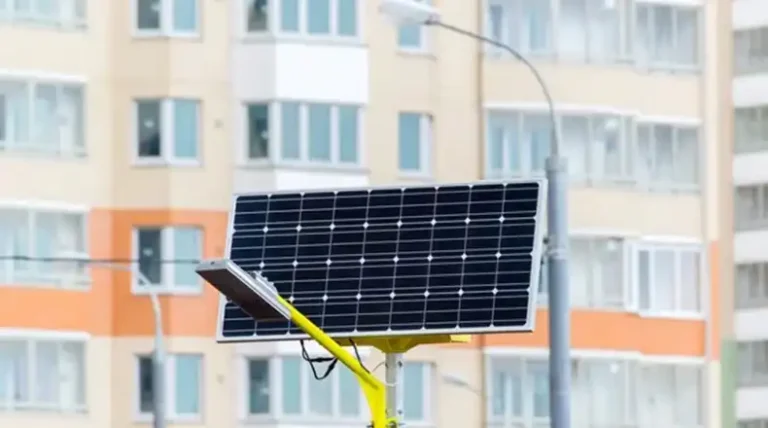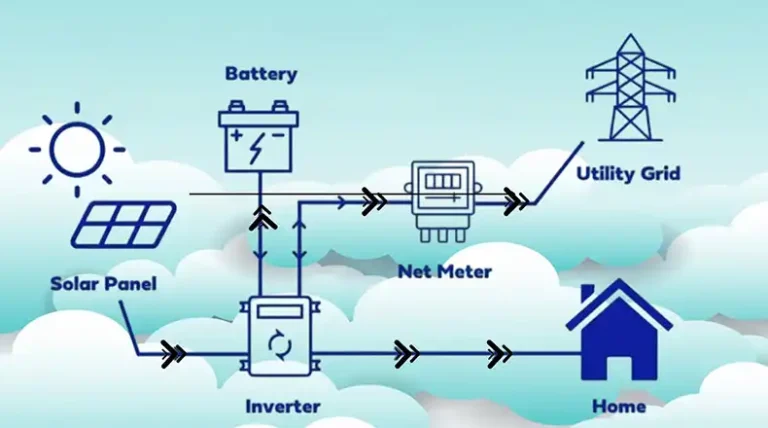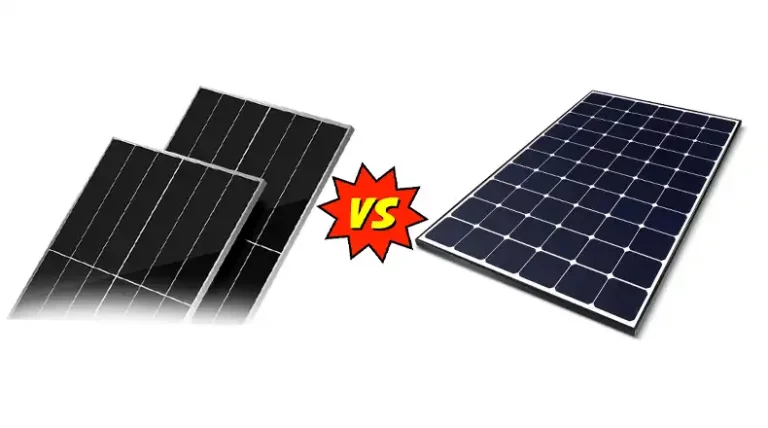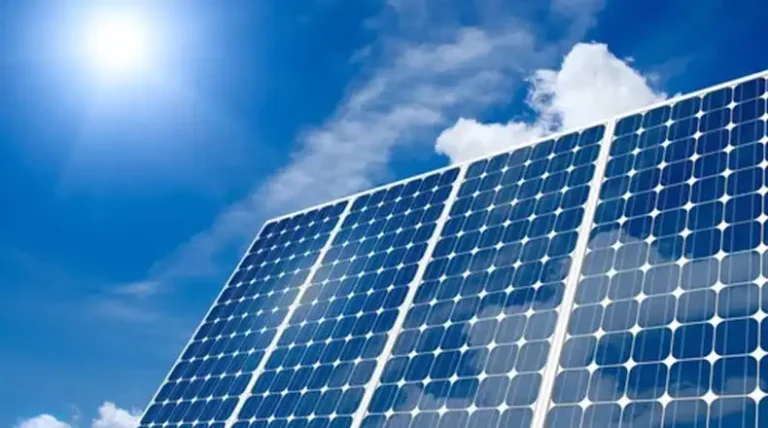How to Calculate the Efficiency of a Solar Panel (How I Calculated)
The realm of solar energy can seem vast and, at times, complex. One term you’ve probably encountered if you’re delving into this world is “solar panel efficiency.” But what does it mean, and more importantly, how do you calculate it? It’s straightforward: Efficiency determines how well a solar panel converts sunlight into usable electricity.
Understanding this concept is pivotal, especially when deciding which solar panels are right for your needs. Armed with this knowledge, you can make informed decisions and maximize the benefits of your solar system.

Just Applying 4 Steps to Calculate Solar Panel Efficiency
Step 1: Determine the Power Output
This is usually mentioned in the panel’s specifications. For instance, if you have a 300W panel, that means under standard testing conditions, it produces 300 watts of power.
Step 2: Know the Solar Panel Area
- Calculate the panel’s area in square meters (length x width). If the panel measures 1.6m by 1m, its area is 1.6 square meters.
Step 3: Identify the Solar Irradiance
- Standard testing conditions assume a solar irradiance of 1000 watts per square meter (W/m²). This represents an average amount of sunlight hitting the panel.
Step 4: Efficiency Calculation
Now, you have everything needed for the calculation:
Efficiency=(Solar Panel Area x Solar IrradiancePower Output)x100%
Example Calculation of Solar Panel Efficiency
Given
Power Output: 250W (This is the amount of power the panel produces under standard testing conditions).
Solar Panel Dimensions
- Length: 1.65m
- Width: 0.99m
Solar Irradiance: Standard testing conditions use a solar irradiance of 1000 watts per square meter (W/m²).
Steps
- Calculate the Solar Panel Area:
Area=Length×Width
Area=1.65m×0.99m=1.6335m
- Calculate Efficiency
Efficiency=(Solar Panel Area x Solar IrradiancePower Output)x100%
For the 250W panel:
Efficiency=(250W1.6335m2x1000W/m2)x100%
Efficiency=(2501633.5)x100%
Efficiency= 15.29%
So, the solar panel in this example has an efficiency of 15.29% under standard testing conditions.
Factors Impacting Solar Panel Efficiency
At its core, solar panel efficiency refers to the portion of sunlight hitting the panel that gets converted into electrical energy. It’s a measure that helps users discern the performance of different solar panels under the same conditions.
While a higher efficiency percentage is generally seen as better, it’s not the only factor to consider. Efficiency affects how much space a solar system will need. More efficient panels generate more power in less space.
However, consider other factors like –
- Material and Technology: Monocrystalline panels are usually more efficient than polycrystalline ones.
- Temperature: Panels generally perform better in cooler conditions. High temperatures can reduce efficiency.
- Angle and Orientation: The angle at which sunlight hits the panel and its orientation (facing the sun) can influence performance.
- Age of the Panel: Over time, solar panels degrade, resulting in slightly reduced efficiency each year.
Additional Questions Answered
Do solar panels lose efficiency over time?
Yes, solar panels degrade over time. On average, most panels lose about 0.5% to 1% of their efficiency each year. So, after 25 years, a panel might still retain 75-80% of its original efficiency.
Are there panels with an efficiency higher than 20%?
Indeed, some premium solar panels boast efficiencies of over 20%. These are typically more expensive but can be ideal for spaces where area is a constraint.
How do weather conditions affect efficiency?
Cloudy days, shadows, and less sunlight during winter can reduce the amount of sunlight panels receive, impacting their efficiency. Moreover, as mentioned, extreme heat can also slightly reduce performance.
Final Reflections
Understanding the efficiency of a solar panel is like acquiring a compass in the vast solar landscape. It guides your choices, ensuring you harness the sun’s power in the most optimal way. Yet, it’s just one piece of the solar puzzle. Remember to weigh it against other factors, ensuring you get a holistic view.


![[Answered] How Many Solar Panel Required To Charge 300ah Battery?](https://www.itekenergy.com/wp-content/uploads/2023/08/solar-panel-required-to-charge-300ah-battery-768x428.jpg)

![[Explained] What Can I Do With A 1.5 Watt Solar Panel?](https://www.itekenergy.com/wp-content/uploads/2023/08/what-can-I-do-with-a-1-5-watt-solar-panel-768x428.webp)

